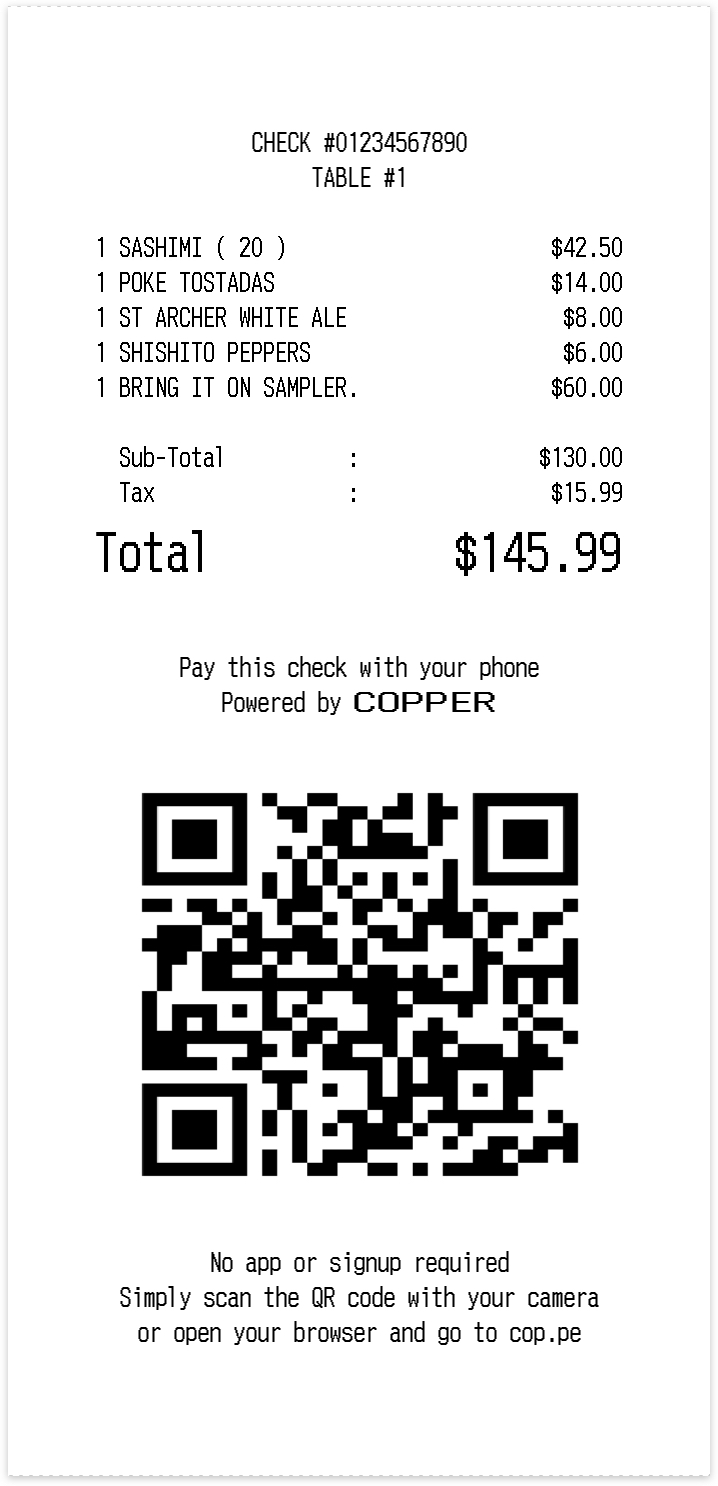Eric Liao, co-founder of Drank, said Nevada’s business-friendly tax structure was “an added benefit” when it came to relocating the startup to the Silver State. Courtesy Photo
 Taylor Epp is co-founder of Drank, which expects to generate about $700,000 in revenue this year. Courtesy Photo
Taylor Epp is co-founder of Drank, which expects to generate about $700,000 in revenue this year. Courtesy Photo
 This is a sample of a receipt with a Copper-powered QR code that customers can scan with their smartphone camera to bring up mobile payment options.
This is a sample of a receipt with a Copper-powered QR code that customers can scan with their smartphone camera to bring up mobile payment options.
 Reno-based Copper created a “plug-and-play” cord that enables bars and restaurant to transform any existing POS system into one that offers contactless payments.
Reno-based Copper created a “plug-and-play” cord that enables bars and restaurant to transform any existing POS system into one that offers contactless payments.
Comments
Use the comment form below to begin a discussion about this content.
Sign in to comment